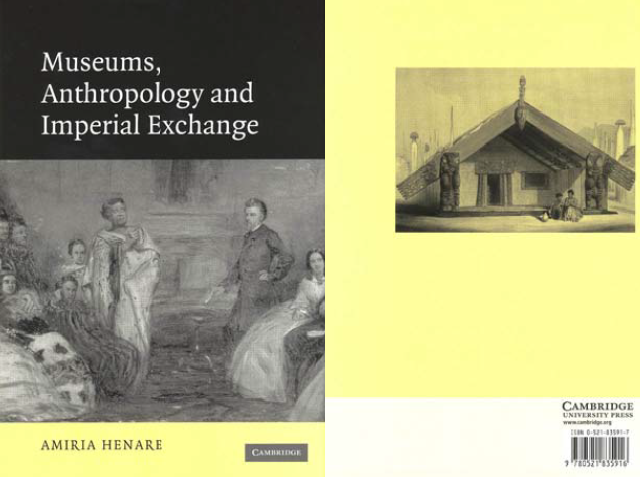Henare, A.J.M. 2005. Museums, anthropology and imperial exchange. – Cambridge, Cambridge University Press
Abstract
An increasing number of books are being produced on museums, the history of collecting for museums, and the role of material culture in our lives. This work, by Amiria Henare is one such work, but one with an unusual perspective to the history of collections: she traces the movement of ethnographic artefacts between New Zealand and Scotland, with an emphasis on how the collection of the objects influenced anthropological thought at the time.
The book is divided into nine chapters. The first, entitled ‘String games’ explores the idea of the artefact as an individual with a history and life of its own, both before and after its entry into what is generally described as the ‘dead’ or ‘fossilised’ world of the museum. Henare reminds us gently that artefacts in museums move us through time and space, creating a new life for themselves in their new environment, indubitably different from their original function, but still connected with people. The second chapter is called ‘Objects of exploration’, and concerns itself with Maori cloaks that are now in British collections. It uses these as a jumping off point to investigate the relationship between New Zealand, the Maoris, and early explorers. The chapter continues with a discussion on how changes in fashion moved the Maori artefacts from the public eye and led to a diaspora of artefacts in single collections, thereby adding an additional layer, or layers, to their history. Read more...
Downloads




